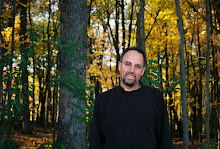Obsessive-compulsive is a hard habit to break.
In addition to watching William Lane Craig and other Christian apologists, I recently became dubiously addicted to watching Christopher Hitchens, Richard Dawkins, and other atheists on YouTube. Why? Just fleshly, I guess.
I was actually toying with the idea of what life would be like without any concept of God.
"Traitor! Defector!" I can just hear the cries now.
But I learned some things as I watched and noted everything with Asperger's-level ferocity.
1. Some atheists began as Christians who never went deep enough with God, in all his offices, and with a life-changing result.
2. Others were burned by people in the church, and in their anger, went to skeptical scholarship to confirm what they had already decided was a farce.
3. Atheists like to begin at the beginning with Genesis, and debunk each story in the Bible. But theoretically, they would hate on every page, through all 66 books. Don't they see the futility of it all? How could a mere man write all those "offensive stories" back to back? The paradox of it all seems like it should awaken faith, as the emotions tire of sore hatred, and the promise of the Seed of Abraham unfolds to comfort the soul.
4. Virtually all atheists make the same mistake as they consider matters of religious faith, and often the Christian apologists follow them down the same hole: The mind is tool which is to be used to receive truth, but the affair does not end with the mind. Both atheists and Christians can put up some astute arguments for their positions, and there are many eminent scholars from both camps. But I have never heard a skeptic convinced by a debate. In this regard, the Enlightenment reaches further than many have anticipated. Debating on the plausibility of faith or lack thereof misses the point that God is a person, and therefore implies a relationship. Information about a relationship doesn't save you. Reconciliation to a Person does.
5. From my own personal experience, relational dysfunction has a way of warping the perceptions of the mere mortal parties. We tend to attribute negative motives and characteristics to persons we do not like, regardless of how much good information we hear about them. This determines more political elections than we care to admit. It is the same with the faithless. They really do not like God, and therefore they harp on all the things they they hear that they don't like--this accounts for the "through the Bible" tirade they carry out.
6. Faith is a pre-condition of the mind's operation, and consists in a positive posture toward the object of faith. The mind chooses in the direction of it's desire. In this way, it is the pre-existing condition of verbal affirmations of God and his truth. Therefore, my problem is a cold heart, and that is an emergency before the attending Physician of heaven.
Even after my confession to God for my faithlessness and the attending joy, I realize the battle may have only begun. There will be more assaults on faith in God via stress, disappointment, human flesh, Satan's activity, and last but not least, relationship problems on a human level. But the struggle did not succeed in pulling me away to a faithless position--and that is encouraging. It reminds me of the Eagles song: "Every time I try to walk away...something makes me turn around and stay."
I guess that means one of the things that has to happen in 2011 is a vital connection to the church local and catholic.
Sunday, January 9, 2011
Subscribe to:
Post Comments (Atom)

No comments:
Post a Comment